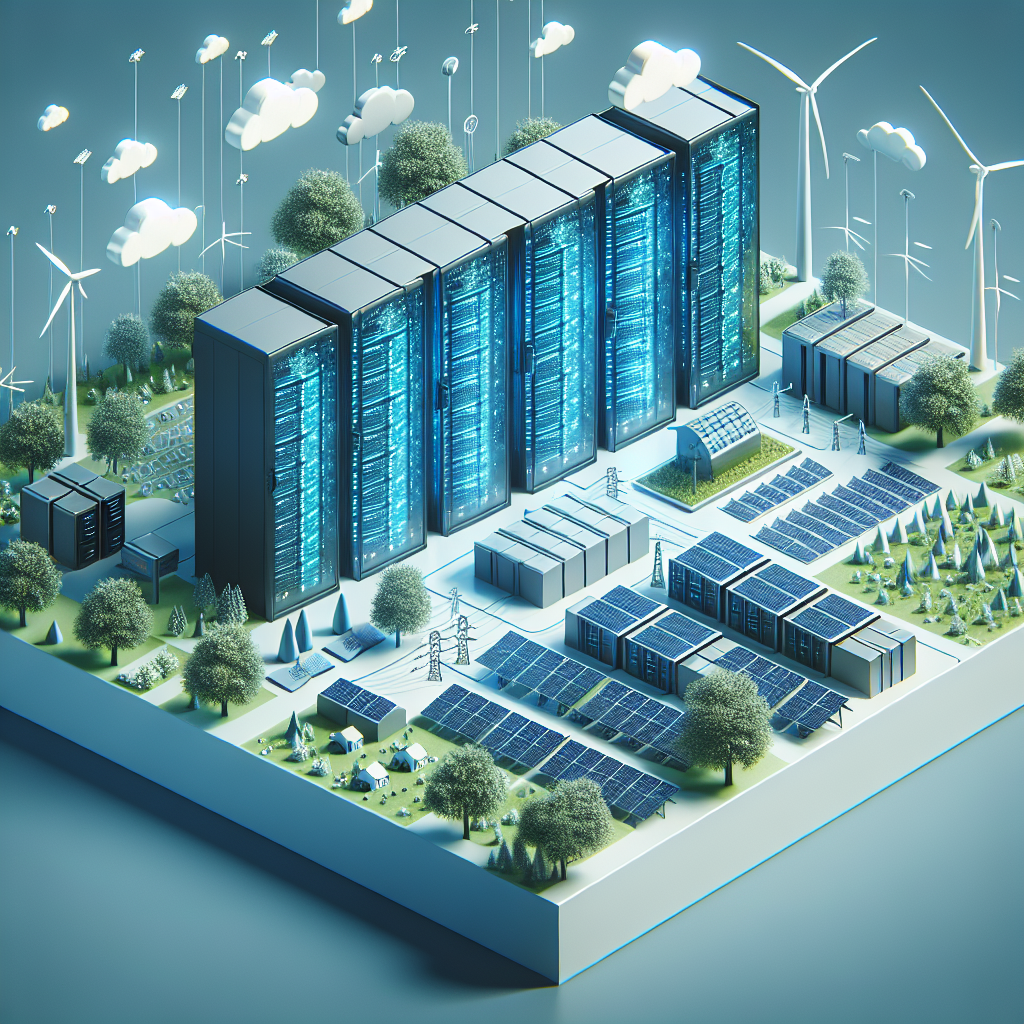Your cart is currently empty!
The Future of Data Centers: Achieving Sustainable Energy Practices

Data centers play a crucial role in our digital world, serving as the backbone of the internet and storing vast amounts of data that power our online activities. However, with the increasing demand for data storage and processing, data centers have also become significant energy consumers, contributing to environmental concerns such as carbon emissions and energy consumption. As a result, there is a growing focus on achieving sustainable energy practices in data centers to mitigate their environmental impact and ensure a more sustainable future.
One of the key challenges in achieving sustainable energy practices in data centers is the high energy consumption required to power and cool the servers and other equipment. According to a report by the International Energy Agency, data centers are estimated to consume around 200 terawatt-hours of electricity annually, equivalent to the energy consumption of some countries. This high energy consumption not only contributes to carbon emissions but also adds to the operational costs of data centers.
To address these challenges, data center operators are increasingly turning to renewable energy sources such as solar, wind, and hydroelectric power to power their facilities. By investing in renewable energy sources, data centers can reduce their carbon footprint and reliance on fossil fuels while also helping to drive the transition to a more sustainable energy system.
In addition to using renewable energy sources, data centers are also exploring other energy-efficient technologies and practices to reduce their energy consumption. This includes implementing energy-efficient servers and cooling systems, optimizing server utilization through virtualization and workload consolidation, and adopting energy management systems to monitor and control energy usage. By implementing these energy-efficient technologies and practices, data centers can significantly reduce their energy consumption and operational costs while also improving their environmental performance.
Furthermore, data center operators are also exploring innovative solutions such as liquid cooling and heat recapture technologies to further improve energy efficiency and reduce their environmental impact. Liquid cooling technologies, for example, use liquid coolant to cool servers more efficiently than traditional air cooling methods, while heat recapture technologies capture and repurpose waste heat generated by servers for heating buildings or generating electricity.
Overall, the future of data centers lies in achieving sustainable energy practices to reduce their environmental impact and ensure a more sustainable future. By investing in renewable energy sources, adopting energy-efficient technologies and practices, and exploring innovative solutions, data centers can play a crucial role in driving the transition to a more sustainable energy system and mitigating the environmental impact of their operations. As the demand for data storage and processing continues to grow, it is essential for data centers to prioritize sustainability and embrace sustainable energy practices to ensure a greener and more sustainable future for all.

Leave a Reply